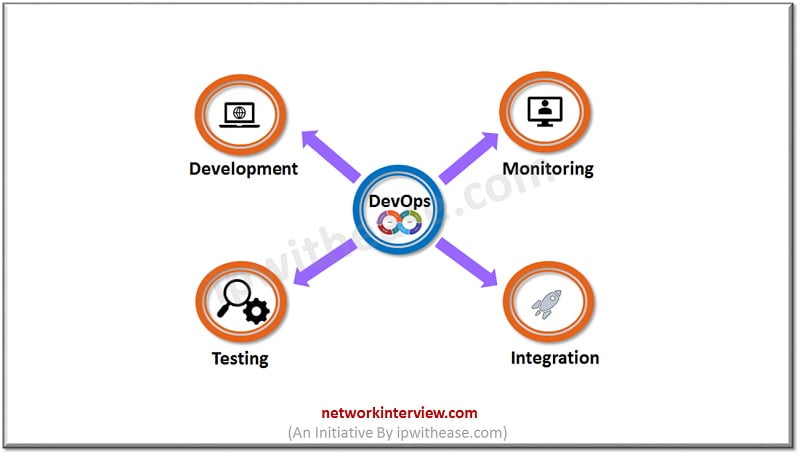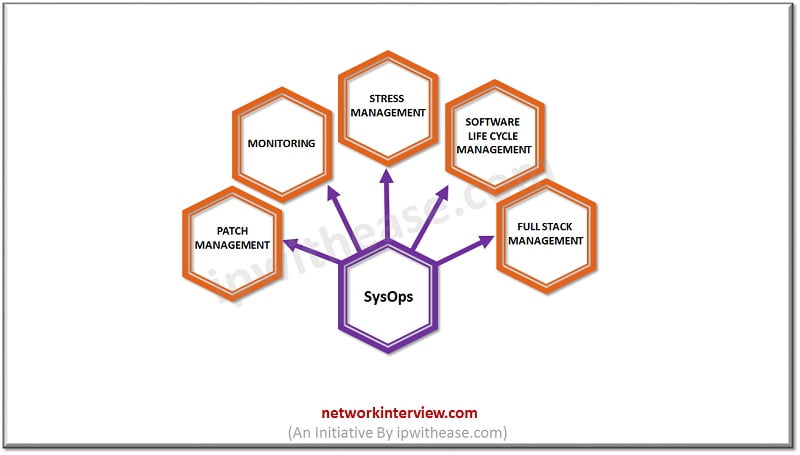Technology advancements are crucial to the dynamic IT landscape in today’s times. Cloud computing has been crucial which presents excellent opportunities to business for the future. SysOps and DevOps are commonly used terminologies in cloud computing.
In the past times organizations hired multiple personnel to perform different set of activities however as the cloud computing came into existence the job role become simpler and administrators have flexibility to support developers in the process of building applications without or lesser defects which otherwise got missed or ignored due to lower weightage in terms of application functionality. Similar way SysOps also found a recognition for business to align with certain standards or frameworks.
Today we look more in depth about DevOps and SysOps terminologies and understand how they could help businesses in bringing agility in delivery and time to market.
About DevOps
DevOps is the commonly used terminology in Cloud computing world. The focus of DevOps is tasks such as development, testing, integration, and monitoring. DevOps uses opensource and cross platform tools like Chef and Puppet for delivery of system configuration and automation. The administrators deal with infrastructure building tasks in DevOps as well as developers have access to the concerns of continuous deployment through automation of build tools.

Features of DevOps
- Reduction in implementation time of new services
- Productivity increase for enterprise and IT teams
- Saves costs on maintenance and upgrades
- Standardization of strategies for easy replication and quick deliveries
- Improves quality, reliability, and reusability of system components
- Rate of success is increased with digitization and transformation projects
About SysOps
SysOps generally deals with monitoring and justifying the right cloud services with best practises. The SysOps is a modern approach that supports monitoring, management and operations of infrastructure systems. SysOps is useful in troubleshooting of issues emerging during operations. SysOps is based on IT service management (ITIL) framework which concentrates on aligning business goals to IT services. ITIL enables organizations to form a baseline from which they can design, execute and measure the effectiveness. It shows compliance and estimated improvement.

Comparison Table: DevOps vs SysOps
Below given table summarizes the difference between DevOps and SysOps:
|
FUNCTION |
DevOps |
SysOps |
| Definition | DevOps is a collaboration between software development and IT teams | SysOps is an administrator of cloud services which handle some or most of the tasks relayed to software development environment |
| Approach | Adaptive approach by breaking down complex problems in small iterative steps | Consistent approach to identify and implement changes to systems |
| Aim | Acceleration of software development process by bringing development and IT teams together | SysOps aim is to manage all key responsibilities of the IT operations in a multi user environment |
| Delivery Methodology | Compliance with principles for seamless and stable collaboration and coordination between development and operations team | Compliance with ITIL for services delivery and focuses on alignment of business objectives with IT services |
| Code development approach | Unpredictable rate of changes in code deployment | Predictable changes in code and deployment at specified intervals with the support of SysOps professionals |
| Responsiveness to change | Adaptive approach to code change | Consistency in approach with de-risking factor in the event of new changes are introduced |
| Implementation of changes | Changes are applied to code | Changes are applied to servers |
| Value for business | Value improvement for customers henceforth improvement in business | Smooth functioning of system processes ensure improvement in value for organization |
| Infrastructure management approach | Depends on usage of best automation tools | Drive by focused attention on each server |
Download the comparison table: DevOps vs SysOps
Conclusion
Every organization faces tough decision when it comes to choose between DevOps and SysOps so a clear understanding is required in terms of business need for speed of execution, significance of predictions and traffic rate determination for an application – highs and lows of traffic, businesses also need to know speed of scaling based on change in traffic, frequency of performing releases to the applications.
DevOps and SysOps are two major areas of cloud computing and both are used to manage infrastructure. If choice is to be made between the two than we need to look deeper into the requirements so as to build an application as under:
- Load predictability estimation
- Traffic trends (Highs and lows)
- Clear idea of execution speed requirements
- Rapid application change requirements
- Rapid scaling requirements of applications
- Business nature global or local
- Frequency of application releases
Continue Reading:
DevOps vs NetOps
DevOps vs NetDevOps